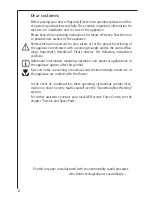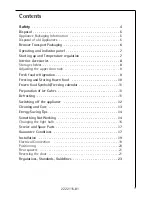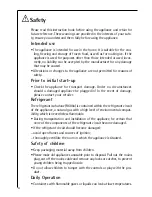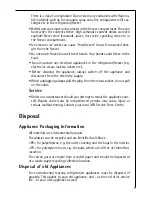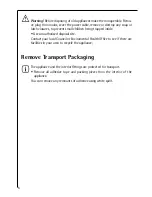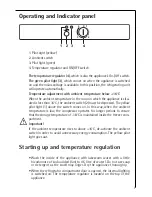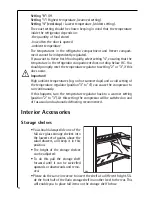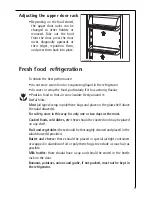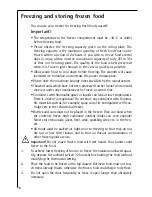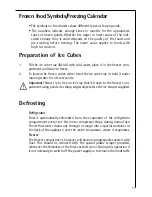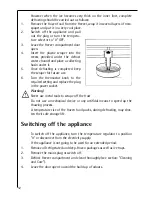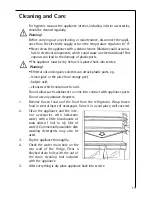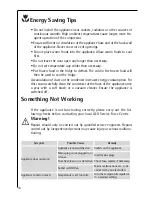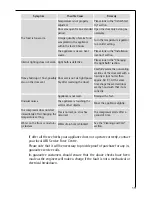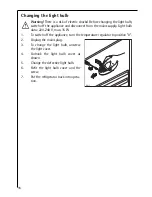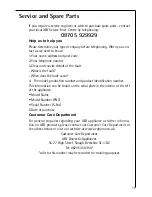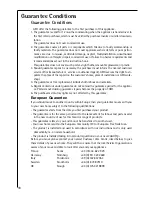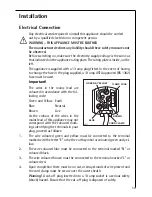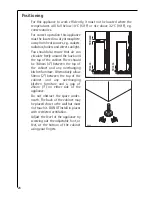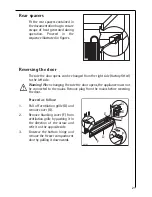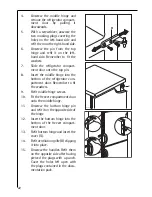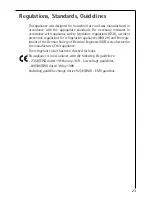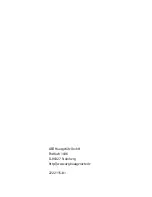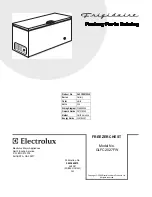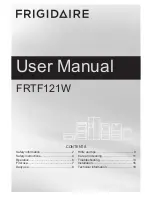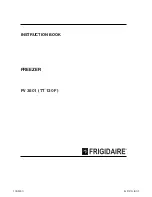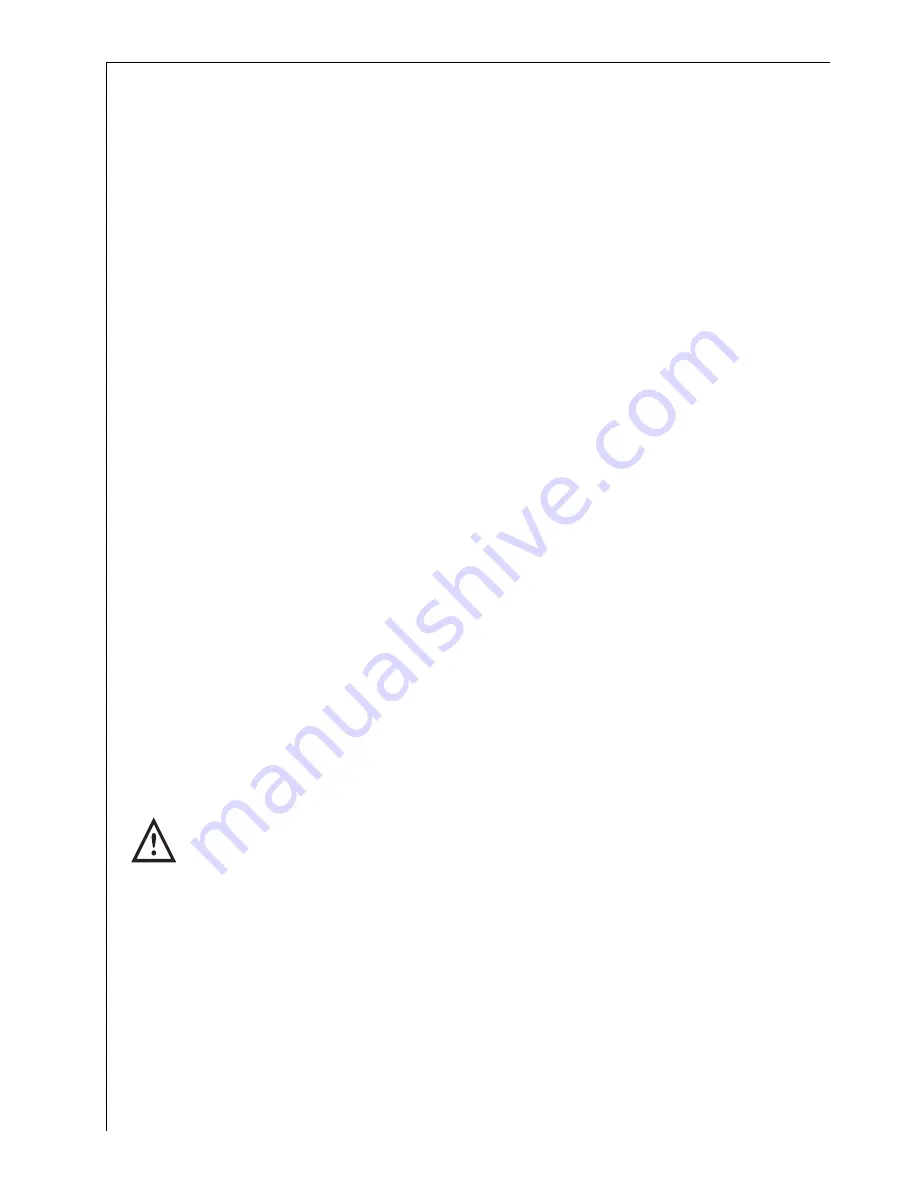
10
Freezing and storing frozen food
You can use your freezer for freezing fresh food yourself.
Important!
• The temperature in the freezer compartment must be –18 °C or colder
before freezing food.
• Please observe the freezing capacity given on the rating plate. The
freezing capacity is the maximum quantity of fresh food that can be
frozen within a period of 24 hours. If you wish to freeze food several
days in a row, please observe a maximum capacity of only 2/3 to 3/4
of that on the rating plate. The quality of the food is best preserved
when it is frozen right through to the core as quickly as possible.
• Allow warm food to cool down before freezing. The warmth will cause
increased ice formation and increase the power consumption.
• Please note the maximum storage times specified by the manufacturer.
• Thawed foods which have not been processed further (cooked into meals)
may not under any circumstances be frozen a second time.
• Containers with flammable gases or liquids can leak at low temperatures.
There is a risk of an explosion! Do not store any containers with flamma-
ble materials such as, for example, spray cans, fire extinguisher refill car-
tridges etc in the refrigerator/freezer.
• Bottles and cans must not be placed in the freezer. They can burst when
the contents freeze, high carbonate content drinks can even explode!
Never store lemonade, juices, beer, wine, sparkling wine etc. in the free-
zer.
• All foods must be packed air tight prior to freezing, so that they do not
dry out or lose their flavour, and so that no flavour contamination of
other frozen goods occurs.
Important!
Do not touch frozen food with wet hands. Your hands could
freeze to the food.
1.
To achieve faster freezing of food or to freeze the maximum allowed quan-
tity, depress the ambient switch 12 hours before loading the food without
modifying the thermostat setting.
2.
Place the food to be frozen in the top drawer. Unfrozen food must not tou-
ch items already frozen, otherwise the frozen food could begin to defrost.
3.
Do not open the door frequently or leave it open longer than absolutely
necessary.
15
Heavy build up of frost, possibly
also on the door seal.
Door seal is not air tight (possi-
bly after reversing the door).
Carefully warm the non sealing
sections of the door seal with a
hair dryer (not hotter than
approx. 50 °C). At the same
time shape the warmed door
seal by hand such that it sits
correctly.
The food is too warm.
Interior lighting does not work.
The appliance is near a heat
source.
Temperature is not properly
adjusted.
Please look in the "Initial Start
Up" section.
Light bulb is defective.
Please look in the "Changing
the Light Bulb" section.
Turn the temperature regulator
to a colder setting.
Door was open for an extended
period.
Please look in the "Installation
location" section.
A large quantity of warm food
was placed in the appliance
within the last 24 hours.
Open the door only as long as
necessary.
Symptom
Possible Cause
Remedy
Unusual noises.
The appliance is touching the
wall or other objects.
Appliance is not level.
The compressor starts after a
period of time.
See the "Cleaning and Care"
section.
This is normal, no error has
occurred.
The compressor does not start
immediately after changing the
temperature setting.
Water on the floor or on stora-
ge shelves.
Water drain hole is blocked.
Move the appliance slightly.
Readjust the feet.
If after all these checks your appliance does not operate correctly, contact
your local AEG Service Force Centre.
Please note that it will be necessary to provide proof of purchase for any in-
guarantee service calls.
In-guarantee customers should ensure that the above checks have been
made as the engineer will make a charge if the fault is not a mechanical or
electrical breakdown.


